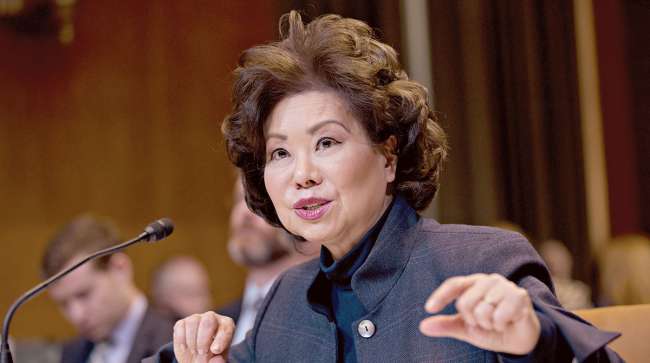Staff Reporter
DOT Finalizes Transportation Self-Governance Program for Tribes

[Stay on top of transportation news: Get TTNews in your inbox.]
The U.S. Department of Transportation has issued a final rule to create the Tribal Transportation Self-Governance Program.
The program provides a framework for federal government offices and Indian tribes to work together to improve transportation infrastructure project delivery in tribal lands. Its purpose is to afford tribes participating in the program greater authority over their use of DOT funds.
The final rule, published in the Federal Register on June 1, resulted from negotiations among representatives of the tribes, DOT and the Department of the Interior.
“The Tribal Transportation Self-Governance Program will boost prospects for economic growth and enhance quality of life by strengthening transportation infrastructure and reducing administrative red tape for tribes receiving funding from the department,” Transportation Secretary Elaine Chao said.

How can trucking companies adjust to ensure that essential freight keeps moving while protecting their workers from coronavirus? Host Seth Clevenger speaks with Lilli Chiu of Hub International and Dave Cox of Polaris Transportation. Hear a snippet, above, and get the full program by going to RoadSigns.TTNews.com.
The program will implement a process through which tribes can negotiate alternative funding mechanisms by executing compacts with DOT. It also will provide tribes with control over the implementation of tribal programs, services, functions and activities.
Another purpose is to reduce administrative burdens on the participating tribes. The Federal Register notice states that DOT will incur a minimal amount of administrative costs to run the program and will dedicate existing employees to this work, rather than increase staff levels.
Additionally, the Federal Register document indicates that tribes could experience “modest cost savings” if they join the program. The savings might come from increased efficiencies from streamlined contract negotiations, simplified fund transfers and greater autonomy in managing funds. Participants also may experience benefits such as greater legal certainty and more timely delivery of funds.
Indian tribes and tribal consortia are eligible for the program. To participate, a tribal government entity must demonstrate fiscal stability and transportation program management capability.
Federal Register Tribal Transportation Self-Governance by Transport Topics on Scribd
The Tribal Transportation Self-Governance Program’s negotiated rulemaking committee considered 200 comments, which it received in response to the proposed rule published in the Federal Register in October. The final rule will take effect Oct. 1.
“Implementation of the [program] through this rule will maintain and improve the federal government’s unique and continuing relationship with and responsibility to tribes, without diminishing the trust responsibility of the United States to Indian tribes and individual Indians that exists under treaties, executive orders, laws and court decisions,” the Federal Register document states.
Leaders from the Federal Mediation and Conciliation Service congratulated DOT and the Indian tribes for finalizing the program. Created in 1947, the Federal Mediation and Conciliation Service is a neutral and independent government agency designed to resolve industrial conflict and promote cooperation.
Federal Mediation and Conciliation Service Chief Strategy Officer Joshua Flax and Strategic Coordinator Moira Caruso served as mediators for the program’s negotiating committee.
“The dedication, commitment and perseverance exhibited by both tribal and DOT representatives on the [program’s] negotiating committee was a shining example of tribal-federal cooperation in service of transportation infrastructure improvement across Indian country,” Flax said. “Their skill as negotiators and as advocates created the foundation for a balanced, inclusive and patient negotiation process that yielded this successful result.”
Want more news? Listen to today's daily briefing:
Subscribe: Apple Podcasts | Spotify | Amazon Alexa | Google Assistant | More




